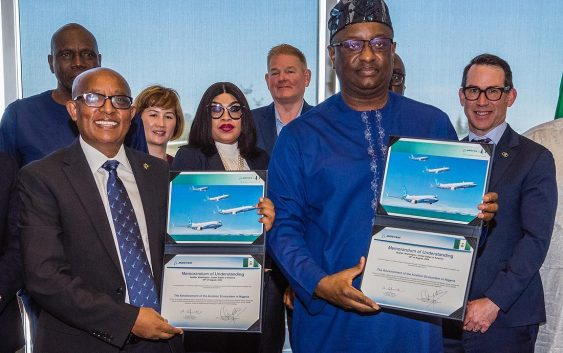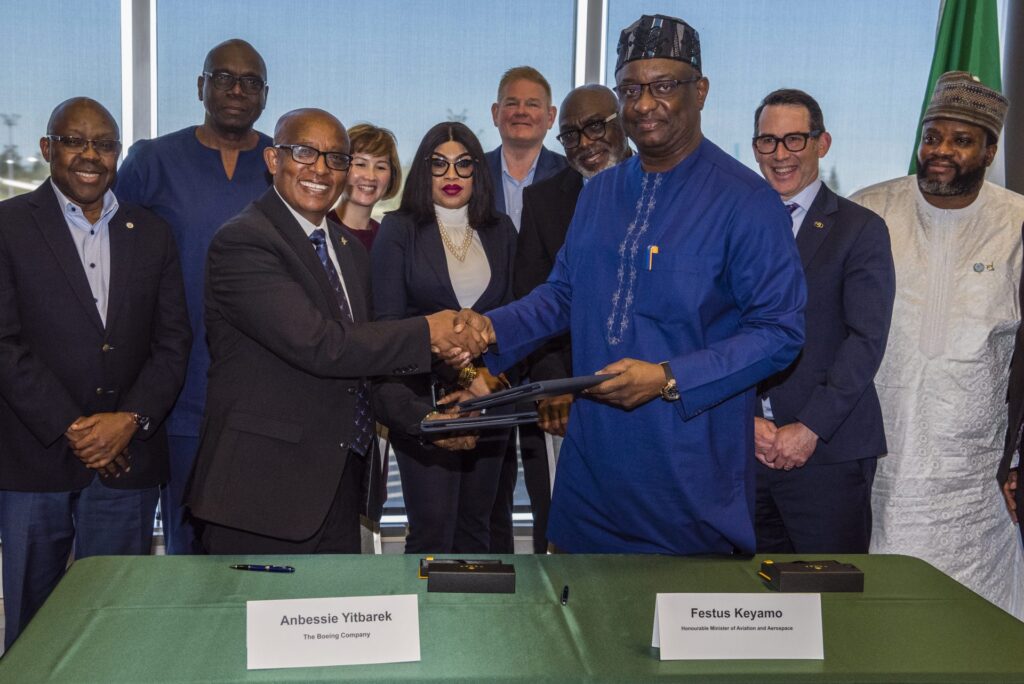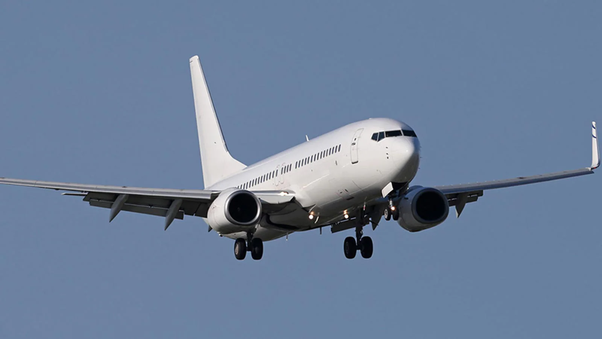Nigeria has taken a significant step toward modernizing its aviation sector by signing a memorandum of understanding (MOU) with Boeing, the global aerospace giant. The agreement, announced on Thursday, is set to enhance Nigerian airlines’ capabilities in leasing new aircraft and accessing crucial maintenance and technical support.

The MOU, signed in Seattle on Wednesday by Nigerian Aviation Minister Festus Keyamo and Boeing executives, comes at a pivotal time for Africa’s aviation market. Boeing projects that the continent will require 1,170 new airplanes over the next two decades, underscoring the potential for growth and the importance of such partnerships.
Under the terms of the agreement, Boeing will provide a comprehensive suite of services to Nigerian airline operators, including planning workshops, training programs, technical support, and assessments for airline operations.
Additionally, Boeing’s Airports Engineering team will offer consultation services to assist in opening or expanding airport capabilities across Nigeria. This aspect of the deal is crucial for developing the country’s aviation infrastructure to meet growing demand and international standards.

The MOU also includes provisions for Boeing to provide advisory services on the development of local aircraft maintenance facilities. This initiative aims to build domestic capacity for aircraft maintenance, reducing reliance on foreign facilities and potentially creating new job opportunities in the Nigerian aviation sector.
Festus Keyamo, Nigeria’s Aviation Minister, hailed the agreement as a milestone, stating, “This partnership with Boeing represents a significant step in our efforts to modernize and enhance the capabilities of Nigerian airlines.” The minister’s comments reflect the government’s commitment to upgrading the country’s aviation industry to meet global standards and compete effectively in the international market.
Anbessie Yitbarek, Boeing’s Vice President of Commercial Sales for Africa, emphasized the strategic importance of the agreement, describing it as “an important step in establishing a sustainable civil aviation ecosystem in Nigeria.” This statement underscores Boeing’s long-term view of the Nigerian and broader African aviation market.

The deal comes as Boeing continues to expand its presence in Africa, where it currently supplies 60 airlines with 500 airplanes across the continent. The company’s projection of 1,170 new airplanes needed in Africa over the next two decades highlights the significant growth potential in the region’s aviation sector.
For Nigeria, Africa’s largest economy and most populous nation, the agreement represents an opportunity to address long-standing challenges in its aviation sector, including aging fleets, maintenance issues, and limited access to modern aircraft. By partnering with Boeing, Nigerian airlines stand to benefit from world-class expertise and technology, potentially improving safety standards, operational efficiency, and passenger experience.
The MOU also aligns with Nigeria’s broader economic diversification efforts, as the government seeks to reduce its dependence on oil exports and develop other sectors of the economy. A robust and modern aviation sector could play a crucial role in facilitating trade, tourism, and economic growth across the country.


